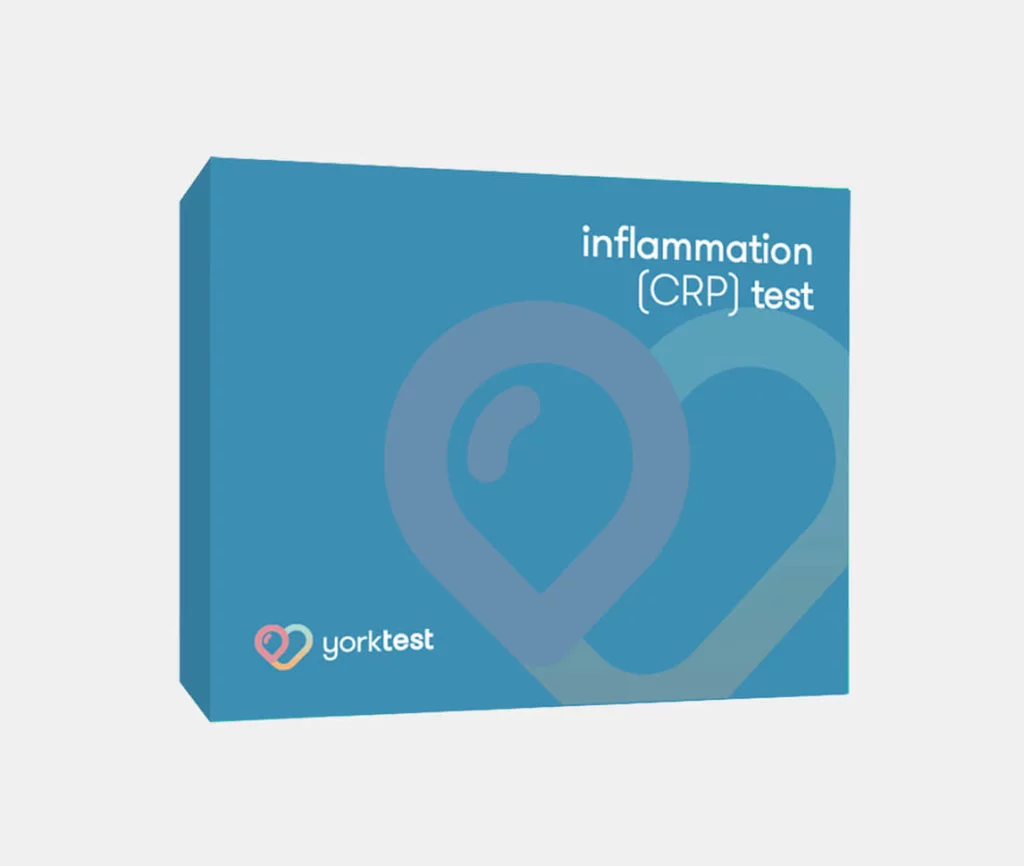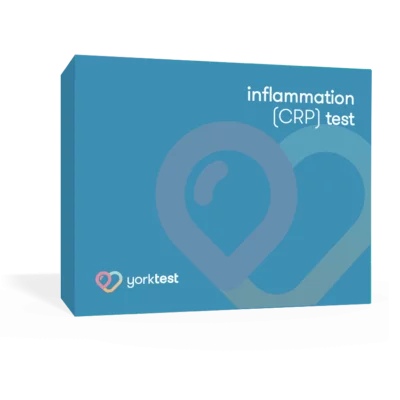Blood tests for CRP measure the levels of the protein in your system, to assess your risk of inflammation and related health conditions. Elevated levels of C-reactive protein indicate a higher level of inflammation in the body, which may be causing damage. This damage can increase the risk of conditions such as heart disease, or may reflect the presence of an autoimmune condition or infection.
A blood sample will be taken – the YorkTest Inflammation (CRP) Test is a simple at-home test that involves a finger prick. Our laboratory team will then test your sample’s C-reactive protein levels to measure this inflammation marker.
WHAT IS A HIGH CRP LEVEL, AND WHAT DOES IT MEAN?
If your blood sample indicates an elevated C-reactive protein level, it may indicate an increased risk of inflammatory conditions. CRP tests use milligrams per litre (mg/L) as a measure.
The YorkTest Inflammation (CRP) Test provides hospital-standard information about your exact CRP level, along with lifestyle guidance. You will receive advice on whether your results show a normal range for C-reactive protein, if lifestyle changes are required, or if a visit to your GP is recommended.
If your blood test returns a high C-reactive protein level, we will recommend visiting your GP for further testing. Your doctor may be able to help diagnose the direct cause of your inflammation and prescribe treatments to help – for example cholesterol-lowering medication or further testing.




